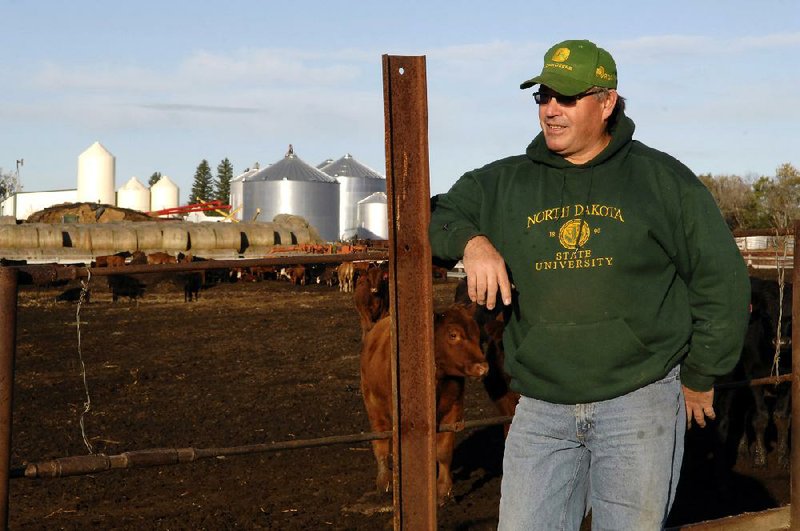BISMARCK, N.D. — Voters in heavily agriculture-dependent North Dakota became the first to enshrine the right to farm in their state constitution, a move that some say could have far-reaching effects on genetic modification, land use and the way animals are raised.
The amendment approved Nov. 6 guarantees the right of farmers to engage in “modern” agriculture and bars any law limiting their right “to employ agricultural technology, modern livestock production and ranching practices.”
Supporters said it was broadly worded to protect farmers far into the future.But critics complained it was too vague, and officials in North Dakota said this week that they aren’t sure what the new right really means, how long it will take to define it or whether it would survive a court challenge. Another big question is whether other states will follow.
“There’s certainly a lot of interest in the states in protecting agriculture and agricultural practices,” said Scott Hendrick, a program director with the National Conference of State Legislatures. “This takes a broader tack. I think some states will look at this.”
The North Dakota Farm Bureau collected signatures to get the amendment on the ballot after the Humane Society of the United States unsuccessfully pushed a measure two years ago to abolish fenced hunting preserves in North Dakota. Farm groups in other states also had become concerned about the Humane Society and other animal-welfare organizations pushing laws to ban small crates for chickens and pregnant pigs, and what they saw as a heavier hand with federal regulation under President Barack Obama.
Farmers pushed back with social media campaigns designed to sway public opinion and their own initiatives, such as a law passed earlier this year in Iowa that makes it a crime to lie on a job application to get access to a farm to record video of animal abuse.
North Dakota’s constitutional amendment takes farm protection a step further.
“It’s going to give us a big leg up on special interest groups that come in from outside and want to tell us what to do and what not to do,” said Doyle Johannes, president of the state Farm Bureau. “They’re not going to stop. That was the big thing, to beat these people back. We don’t need outsiders coming here and telling us how to do things.”
The amendment passed with two-thirds of the vote Nov. 6 - the same day voters in California rejected a measure calling for labeling on food products containing genetically modified ingredients. Farm groups also saw that proposal as an attack on agriculture because some of the nation’s most important crops, such as corn, are mainly grown with genetically engineered seeds.
One reason the amendment did so well in North Dakota is likely the big role agriculture plays in the state economy. North Dakota leads the nation in the production of eight commodities, from spring wheat to honey and navy beans, and it is among the top five producers of 15 crops.
Opponents spent $46 million on advertising to defeat the California ballot initiative. In contrast, the North Dakota Farm Bureau spent only about $150,000 to promote its amendment, which drew little attention from out of state.
Johannes said it’s getting more notice now. He was at a Farm Bureau meeting in Iowa on Wednesday, and the North Dakota measure was one of the topics of discussion. He also plans to talk about it at a national meeting in Washington next month.
Joe Maxwell, a vice president with the Humane Society, said he wouldn’t be surprised if North Dakota’s constitutional amendment sparked similar efforts in other states.
“I think it will be a natural occurrence. I think some states will pause. I’m not suggesting it will pass everywhere,” he said.
Business, Pages 74 on 11/18/2012
